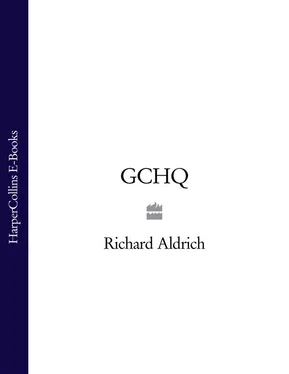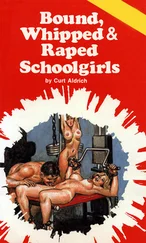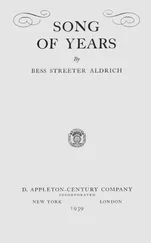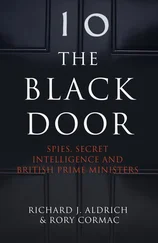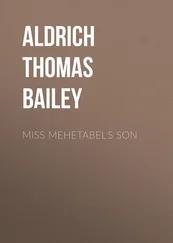On 15 September 1944, only weeks after the liberation of Paris, this planning group began to consider GC&CS’s post-war future. It was led by Gordon Welchman, who was Assistant Director for Mechanisation, and had also been responsible for Hut Six, where Enigma was broken. Some of the exciting ideas the group advanced for the future of GC&CS grew largely out of the Hut Six experience. It called for a more centralised ‘Foreign Intelligence Office’ as part of a coherent national intelligence organisation, and for a comprehensive body dealing with all forms of sigint, together with a modern signals security organisation with the latest communications engineering. This, the group believed, could become a truly modern ‘Intelligence Centre’ governing all types of interception activities. 51
Welchman’s group was tough-minded. There were, it argued, few people in GC&CS with real ability in general planning and strategic coordination. They observed, ‘it would be difficult to count as many as a dozen’. This talent should not be wasted on the final year of the war against Japan. Instead, as soon as the war in Europe was over, ‘as many as possible of the few potential planners should be set to work in the direction of our three immediate objectives, instead of devoting more of their time to Japanese problems’. GC&CS should not lose touch with developments in the field of Japanese sigint problems, since there were interesting things to learn in this sphere. However, it should merely extract technical benefits from the Japanese War, rather than expend resources upon it. British commanders in Burma, like Field Marshal Bill Slim, realised that they were now a low priority for the intelligence services, and complained bitterly about it. 52
GC&CS realised that speed was of the essence. It was ‘imperative to make an approach to the present Prime Minister at the earliest possible moment’. Any successor to Churchill, it reasoned, however sympathetic, could not have a real appreciation of ‘the fruits of intelligence in this war’, or Churchill’s keen appreciation of the importance of tight security. In Churchill it had a heavyweight advocate, and it feared a return to the pre-war situation of under-recognition of what sigint could achieve; even now, the true scale of its wartime output was known to only a very few in high places. Moreover, the really talented sigint planners were newcomers, and would soon be recalled to their pre-war occupations unless some positive action was taken to retain them. Quite simply, this came down to cash. GC&CS had to have the status to secure ‘a sufficiently liberal supply of money to enable it to attract men of first rate ability’, particularly engineers and electronics experts. It was also aware that it would have to give equal weight to all types of intelligence about foreign countries, ‘including scientific, commercial and economic matters’. This was a tacit reference to the targeting of friendly states. 53
In January 1945, the torch of post-war planning passed to William F. Clarke. Clarke, who had served continuously in code-breaking from 1916, warned that the ‘enormous power wielded by the Treasury’ might soon be brought to bear on GC&CS. As had happened in 1919, work on military cyphers might cease in favour of concentration on diplomatic material only. This, he insisted, could be ‘disastrous’, because the resulting damage to ongoing cryptographic research might mean that in the event of a sudden future conflict, enemy military traffic would prove inaccessible. Even more problematic was the challenge of building up the prestige of GC&CS. Its very secrecy was its worst enemy, ensuring that many in elevated government circles did not know its true value. There was also the ‘potential danger’ of a Labour government coming to power, since the interwar Labour government had found many aspects of the secret state to be repellent.
Clarke also paused to consider the emerging United Nations. Allowing himself some momentary Utopian thoughts, he observed that if the new organisation took the step of abolishing all code and cypher communications, this action ‘would contribute more to a permanent peace than any other’. However, he conceded that this ‘is probably the counsel of perfection’, and was highly improbable. Instead, he predicted that energetic code-making and code-breaking would persist into the post-war world. On the matter of who would control the British code-breakers, he felt that in the past neither the Admiralty nor the Foreign Office had been satisfactory. The current system of control by SIS also brought with it ‘certain disadvantages’. Clarke vigorously asserted that GC&CS should break free, not only of SIS but also of the Foreign Office. Instead it should be a separate organisation under either the Chiefs of Staff or the Cabinet Office, and should be regarded as a wholly separate third secret service. 54
As late as October 1944, some senior figures at Bletchley were still arguing for re-absorption by SIS. John Tiltman, the Soviet specialist, argued that the code-breakers should be ‘closely fused with S.I.S. under the Director General [Sir Stewart Menzies] as the one and only Intelligence producing service’. 55 However, the stock of Menzies was continuing to fall among senior figures in Whitehall. In January 1945, the Chairman of the JIC, Victor Cavendish Bentinck, concocted his own influential vision of ‘the intelligence machine’. He suggested that GC&CS should remain under the overall direction of ‘C’, but at the same time it would be a separate organisation and ‘not a part of SIS’. It would boast its own budget alongside the other secret services as part of the Secret Vote, Britain’s quaintly titled intelligence budget. 56 It was thus Commander Edward Travis, not Menzies, who determined the final shape of GC&CS shortly after VJ-Day. Although peace had arrived, Travis’s mind was already focused on possible future conflict with the Soviets. Recalling the earliest days of the last war, he observed, ‘When information was most urgently required, very little was forthcoming.’ The next war was likely to be of shorter duration, with little time for mobilisation. In such a conflict the British would have to fight with what they had. It was essential that continuity be maintained, and that rapid expansion was possible on the eve of war.
Exactly when the post-war term ‘GCHQ’ came into common usage is a matter of dispute. It was first used as a cover name to confuse workmen dropping off furniture at the Bletchley Park site as early as the end of 1939. 57 By 1946, although technically still merely a cover name, it was used more and more widely to denote Britain’s code-breakers. Travis decided that the new post-war GCHQ would be divided into five groups run by his key subordinates. 58 To cover its multifarious tasks, he hoped to have a thousand civilians plus a hundred military staff at a new sigint centre located somewhere near to the policy-makers in London. By contrast, the outlying Y stations would be manned by about five thousand additional personnel, of whom only a few would be civilians. GCHQ’s own core staff fell rapidly from an end-of-war strength of 8,902 to a projected 1,010 for 1946. 59 Despite the dramatic drop in numbers, Travis concluded that the post-war deal he had struck with the Treasury was ‘on the whole most satisfactory’. For him it was about quality rather than quantity. A few days before Christmas 1945 he explained: ‘The war proved beyond doubt that the more difficult aspects of our work call for staff of the highest calibre, the successes by the Professors and Dons among our temporary staff, especially perhaps the high grade mathematicians, put that beyond doubt.’ He wanted suitable conditions with which to attract these sorts of people, although he knew this would be difficult. 60 Captain Edmund Wilson, Travis’s Principal Establishment Officer, echoed this view, arguing that of the 260 officers to be kept on in their post-war establishment, some two hundred of them must have not only initiative but also ‘first class brains’. 61
Читать дальше
